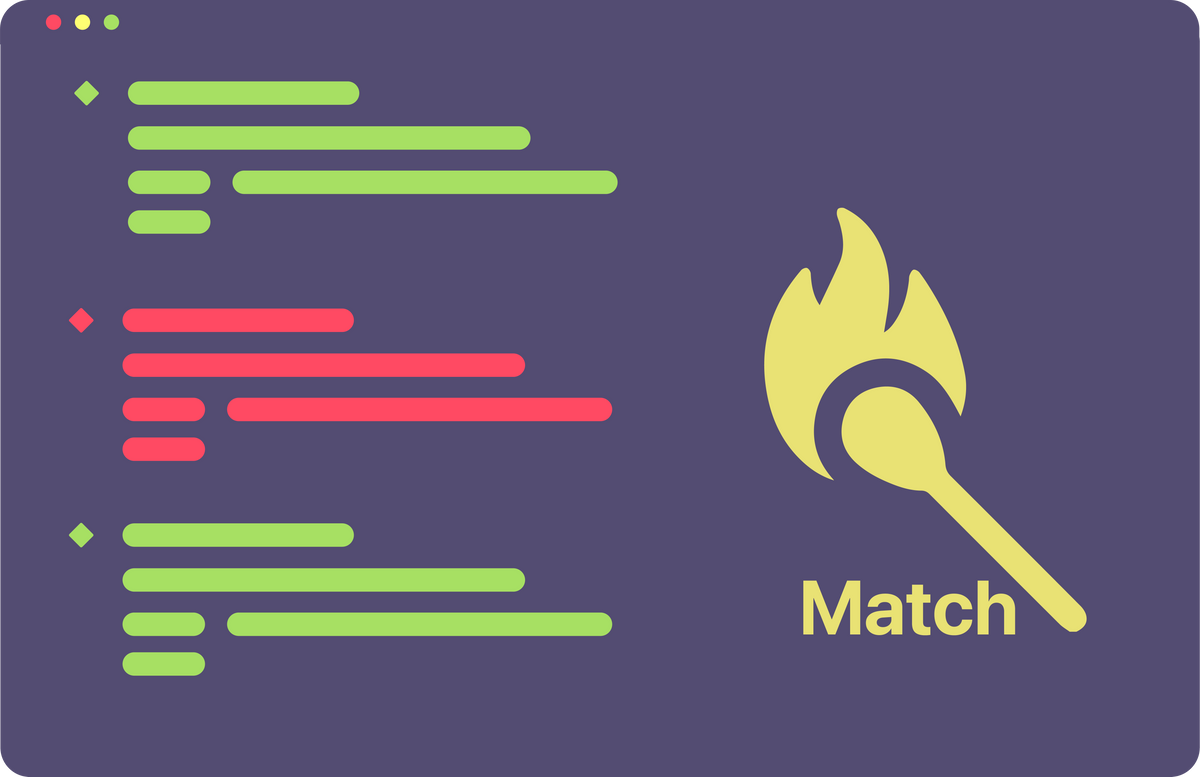I am a big fan of unit tests. I enjoy writing them, but there is one thing I don't like - assertions. I don't know why, but they feel primitive, unintuitive, and in general, hard to work with. I know that there are libraries, like Quick and Nimble, that allow writing tests in more human-readable form (BDD). Those are great libraries, but on the other hand, they are big, and adding them to the small Swift Project doesn't feel right.
Being frustrated by this, I started asking myself: how hard it would be to write my own matching library. It turned out it's not, and after a couple of afternoons, I created Match.
Match allows writing intuitive expectations like in other unit testing libraries. At the moment, it has a basic set of matchers, but they allow to verify most of the cases. From simple comparisons:
func testEquality() {
let actual = 2
expect(actual).toBeEqual(5) // Fails
expect(actual).toBeEqual(2) // Passes
}To more complex scenarios:
struct RefreshOptions: OptionSet {
let rawValue: Int8
static let hourly = RefreshOptions(rawValue: 1 << 0)
static let daily = RefreshOptions(rawValue: 1 << 1)
static let weekly = RefreshOptions(rawValue: 1 << 2)
static let monthly = RefreshOptions(rawValue: 1 << 3)
static let yearly = RefreshOptions(rawValue: 1 << 4)
}
func testRefreshOptions() {
let set: RefreshOptions = [.hourly, .daily, .weekly, .monthly]
expect(set).toContain(.daily) // Passes
expect(set).toContain([.hourly, .daily]) // Passes
expect(set).toContain(.yearly) // Fails
expect(set).toContain([.daily, .yearly]) // Fails
}I had a lot of fun writing it, and I intend to use it in my future projects. I also hope it will be helpful to other developers.

Comments
Anything interesting to share? Write a comment.